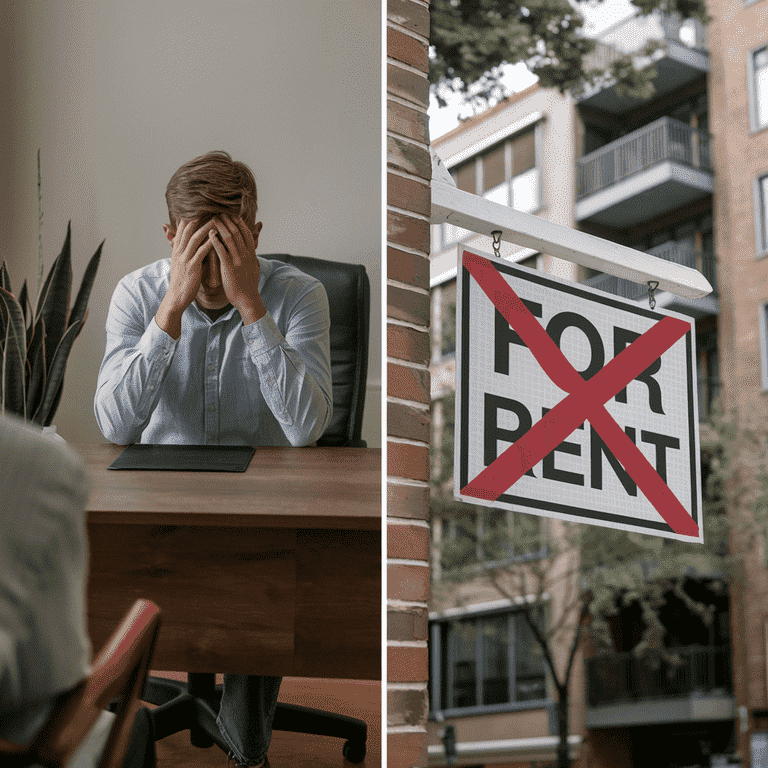Facing burglary charges can be a daunting experience. Whether you’re accused or simply curious, understanding the ins and outs of these charges is crucial. Let’s dive into the world of burglary law and unravel its complexities together.
 What Constitutes Burglary
What Constitutes Burglary
Legal Definition
Burglary isn’t just about breaking into homes. It’s a serious criminal offense involving entering a building or property without permission and intending to commit a crime inside. This could be anything from theft to vandalism or even more serious offenses. Think of it as trespassing with a criminal twist. The exact definition may vary depending on where you live, but the core idea remains the same across jurisdictions.
Elements of the Crime
To prove burglary, prosecutors need to establish three key elements. Let’s break them down:
Unlawful Entry
First, there needs to be unlawful entry. This doesn’t necessarily mean breaking a window or picking a lock. Simply walking through an unlocked door into someone else’s property without their permission can count as unlawful entry.
Intent to Commit a Crime
Next, once inside, there must be an intention to commit a crime. Maybe you entered planning to steal something, or perhaps the idea formed after you got in. Either way, this criminal intent is a crucial part of burglary charges.
Structure or Building
Finally, burglary typically involves a structure or building. This could be a house, an office, or even a car. The key is that it’s a defined space where people have a reasonable expectation of privacy.
Types of Burglary Charges
Degrees of Burglary
Not all burglary charges are created equal. The law recognizes different levels of severity, typically divided into degrees. Let’s explore these:
First-Degree Burglary
This is the most severe type of burglary charge. It usually involves:
- Breaking into an occupied dwelling
- Using or threatening to use a dangerous weapon
- Causing injury to someone inside
First-degree burglary often carries the harshest penalties. It’s treated as a violent crime, even if no violence occurred.
Second-Degree Burglary
A step down from first-degree second-degree burglary might involve:
- Breaking into an unoccupied dwelling
- Entering a commercial property after-hours
- No weapons or injuries were involved
While still serious, second-degree burglary typically has less severe consequences than first-degree.
Third-Degree Burglary
This is generally the least severe burglary charge. It might include:
- Entering an unoccupied structure that isn’t a dwelling
- No weapons or injuries were involved
- Lower value of stolen goods (if any)
Some jurisdictions don’t have a third-degree category, folding these cases into second-degree charges instead.
Aggravated Burglary
Aggravated burglary is a more severe form of the crime. It typically involves:
- Use of a weapon
- Causing bodily harm
- Threatening violence
These factors can elevate a charge from simple burglary to aggravated burglary, resulting in harsher penalties. Understanding these distinctions is crucial. The specific degree of burglary charged can significantly impact the potential consequences if convicted. It’s always best to consult with a legal professional to understand the exact nature of the charges in any specific case.

Common Defenses Against Burglary Charges
When facing burglary charges, it’s not the end of the road. Several defenses can be used to fight these accusations. Let’s explore some of the most common ones:
Lack of Intent
Remember how we talked about intent being a crucial element of burglary? Well, this is where that comes into play. Maybe you wandered into someone’s garage thinking it was your friend’s house. Or you entered a building without plans to commit a crime. Without criminal intent, it’s not burglary.
Consent or Permission
Imagine this: You’re house-sitting for a friend, and a neighbor calls the police, thinking you’re a burglar. Oops! If you had permission to be there, it’s not burglary. This defense hinges on proving you had the right to enter the property.
Mistaken Identity
We’ve all seen those crime shows where the wrong person gets accused. It happens in real life, too. You’re off the hook if you can prove you weren’t the person who committed the burglary. Alibis, surveillance footage, and witness testimonies can be crucial here.
Insufficient Evidence
Sometimes, the prosecution doesn’t have enough evidence to prove their case beyond a reasonable doubt. There may be no fingerprints, no witnesses, or the evidence is circumstantial. In these cases, a reasonable defense attorney can argue that there’s insufficient proof to convict.
Penalties and Sentencing
If convicted of burglary, the consequences can be severe. Let’s break down the potential penalties:
Fines
Burglary convictions often come with hefty fines. These can range from a few thousand dollars to tens of thousands, depending on the severity of the crime and your criminal history.
Imprisonment
Jail time is a standard penalty for burglary. The length of the sentence can vary widely:
- First-degree burglary: Often 5-20 years
- Second-degree burglary: Typically 1-15 years
- Third-degree burglary: Usually 1-5 years
Remember, these are general ranges. Actual sentences can be shorter or longer based on various factors.
Probation
Probation might be an option in some cases, especially for first-time offenders or less severe burglaries. This means you’re released into the community under supervision instead of going to jail. But don’t be fooled – probation comes with strict conditions, and any violation could land you back in court.
Restitution
You might be ordered to pay restitution if you damaged property or stole something during the burglary. This means compensating the victim for their losses. It’s on top of any fines you might have to pay.
Legal Process for Burglary Charges
Navigating the legal system can feel like walking through a maze. Let’s break down the process step by step:
Arrest and Booking
It all starts here. If you’re suspected of burglary, you might be arrested and taken to the police station. There, you’ll be photographed and fingerprinted, and your personal information will be recorded. This is called booking.
Arraignment
Next up is your first court appearance. This is called an arraignment. Here’s what happens:
- The charges against you are formally read
- You enter a plea (guilty, not guilty, or no contest)
- The judge decides on bail or release conditions
Having a lawyer with you at this stage is a good idea. They can help you understand the charges and advise on how to plead.
Plea Bargaining
Many burglary cases never make it to trial. Instead, they’re resolved through plea bargaining. This is a negotiation between your lawyer and the prosecutor. You might agree to plead guilty to a lesser charge in exchange for a lighter sentence.
Trial
If your case goes to trial, both sides will present their evidence to a judge or jury. Witnesses may be called, evidence examined, and arguments made. Ultimately, the judge or jury will decide if you’re guilty or not guilty. Here’s a simplified timeline of the process:
- Arrest and Booking
- Arraignment
- Plea Bargaining (if applicable)
- Trial (if no plea deal is reached)
- Sentencing (if found guilty)
Remember, this process can be complex and intimidating. Having a knowledgeable attorney by your side can make a world of difference.

Impact of Burglary Charges
Being charged with burglary isn’t just about potential jail time or fines. It can have far-reaching consequences that affect many aspects of your life.
Criminal Record
If convicted, a burglary charge becomes part of your permanent criminal record. Think of it as a shadow that follows you around. It can pop up during background checks, potentially influencing future opportunities.
Employment Consequences
Job hunting? A burglary conviction can make it challenging. Many employers are hesitant to hire someone with a criminal record, especially for a crime involving theft or breaking into property. You might find doors closing before you even get a chance to explain.
Some potential employment issues:
- Difficulty getting hired
- Loss of professional licenses
- Limited career advancement opportunities
Housing Difficulties
Finding a place to live can become a real challenge. Landlords often run background checks, and a burglary conviction might make them think twice about renting to you. This can limit your housing options and force you into less desirable neighborhoods.
Loss of Rights
A burglary conviction can strip away certain rights you might take for granted. For instance:
- Voting rights (in some states)
- Right to own firearms
- Ability to receive certain government benefits
It’s like parts of your citizenship are put on hold. Regaining these rights can be a long and complicated process.
Seeking Legal Representation
When you’re up against burglary charges, going it alone is like trying to perform surgery on yourself. It’s risky and likely to end badly. That’s where a reasonable criminal defense attorney comes in.
Importance of a Criminal Defense Attorney
A skilled lawyer is your guide through the legal maze. They bring several crucial benefits:
- Legal Knowledge: They understand the intricacies of burglary laws and can spot weaknesses in the prosecution’s case.
- Negotiation Skills: If a plea bargain is on the table, they can negotiate for the best possible deal.
- Court Experience: They know the ins and outs of courtroom procedures, ensuring your rights are protected throughout the process.
- Strategic Planning: They can develop a defense strategy tailored to your situation.
- Emotional Support: Let’s face it: facing charges is stressful. A reasonable attorney can provide reassurance and keep you informed every step of the way.
Choosing the Right Lawyer
Not all lawyers are created equal. When looking for a criminal defense attorney, consider:
- Experience: Have they handled burglary cases before? What were the outcomes?
- Reputation: Check reviews and ask for references. A good reputation in the legal community can go a long way.
- Communication: Do they explain things clearly? Are they responsive to your questions?
- Fees: Understand their fee structure upfront. The cheapest option is only sometimes the best, but neither is the most expensive.
Remember, your choice of attorney can significantly impact the outcome of your case. It’s worth taking the time to find the right fit.
Related Offenses
Burglary doesn’t exist in a legal vacuum. Several related offenses often come up in similar contexts. Understanding these can help you better grasp the nuances of your situation.
Robbery
Often confused with burglary, robbery is its more aggressive cousin. Here’s the critical difference: robbery involves taking something directly from someone, usually by force or threat.
Picture this:
- Burglary: Sneaking into an empty house to steal a TV.
- Robbery: Threatening someone with a weapon to take their wallet.
Robbery is generally considered more severe because it involves confrontation with a victim.
Theft
Theft is the simplest of these offenses. It’s taking something that doesn’t belong to you without permission. Unlike burglary, theft doesn’t involve entering a building or structure.
Examples of theft:
- Shoplifting from a store
- Pickpocketing
- Taking a bicycle left on the street
Breaking
This offense is like burglary’s little brother. It involves unlawfully entering a building without the intent to commit a crime inside. Maybe you broke into an abandoned house on a dare or entered a closed business out of curiosity. It’s still illegal but potentially less severe than burglary.

Rehabilitation and Prevention
Let’s face it – nobody wants to end up in this situation again. Whether you’re facing charges or have been convicted, there are paths forward. The justice system isn’t just about punishment but also rehabilitation and preventing future offenses.
Diversion Programs
Many jurisdictions offer diversion programs, especially for first-time offenders. These programs aim to address the root causes of criminal behavior and provide alternatives to traditional sentencing. What might a diversion program include?
- Counseling or therapy sessions
- Community service
- Drug or alcohol treatment (if substance abuse was a factor)
- Educational courses
Completing a diversion program can sometimes lead to reduced charges or even case dismissal. It’s like a second chance to get back on track.
Counseling and Support Services
Regardless of the legal outcome, counseling can be a valuable tool. It can help you:
- Understand what led to the offense
- Develop coping strategies for stress or difficult situations
- Build a support network
Many communities offer free or low-cost counseling services. Your attorney or the court can provide referrals. Remember, seeking help isn’t a sign of weakness. It’s an intelligent step towards a better future.
Prevention is key. Here are some strategies to avoid future legal troubles:
- Know the law: Understand what constitutes burglary and related offenses.
- Respect boundaries: Always get permission before entering someone else’s property.
- Address underlying issues: If substance abuse or mental health concerns played a role, seek appropriate treatment.
- Find positive influences: Surround yourself with people who support your efforts to stay on the right side of the law.
- Set goals: Focus on building a positive future for yourself.
By taking proactive steps, you can reduce the risk of future legal issues and work towards a more positive path in life. Remember, everyone makes mistakes. The important thing is how you learn and grow from them. With the proper support and mindset, it’s possible to move past burglary charges and build a brighter future.

Remember, every case is unique. What applies in one situation might not in another. You must consult a qualified attorney if you’re facing burglary charges. If you or someone you know is dealing with this issue, don’t panic. Take a deep breath. Reach out for help. The road ahead might be challenging, but you can walk with others.
Knowledge is power, and now you’re armed with a better understanding of burglary charges. Whether you’re directly affected or just curious, this information can help you navigate the complex world of criminal law with more confidence.

Frequently Asked Questions
What is the difference between burglary and theft?
While both involve taking something that doesn’t belong to you, the main difference is that burglary involves entering a building intending to commit a crime. Theft, however, simply consists of taking someone else’s property.
How long after being charged with burglary does a trial typically start?
The timeline can vary depending on several factors, such as the complexity of the case and the court’s schedule. It could be weeks or even months. However, every person charged with a crime has the right to a speedy trial.
What happens if I'm found not guilty?
If you’re found not guilty, you’ve been acquitted and are free to go. The charges are dismissed, and the burglary accusation will not appear as a conviction on your criminal record.
Can a burglary charge be expunged from my record?
In some cases, yes. The laws vary, but if certain conditions are met, you may be able to have the burglary charge deleted or removed from your record. It’s best to consult a law firm like Rosenblum Allen to discuss your situation.
Do I have to go to jail while waiting for the trial?
Not necessarily. After you’ve been charged, a judge will usually set bail. If you can pay the bail amount, you can stay out of jail until your trial. Sometimes, a judge might release you on your recognizance, which means you promise to return for future court dates.
Can a defense attorney get my charges dropped or reduced?
While there is no guarantee, a defense attorney can often negotiate with the prosecution to have charges dropped or reduced, mainly if there are weaknesses in the prosecution’s case or mitigating circumstances.
Can the victim of the burglary drop the charges?
In most cases, once charges have been filed, the decision to drop them rests with the prosecutor, not the victim. However, the victim’s wishes may influence the prosecutor’s decision.
What should I do if I can't afford a defense attorney?
You have the right to a public defender if you can’t afford to hire a defense attorney. However, it’s important to remember that public defenders often have heavy caseloads. Hiring a defense attorney, if you’re able to do so, can ensure more personalized attention to your case.
Can I represent myself in a burglary case?
While you have the right to represent yourself, also known as “pro se” representation, it’s generally not recommended. The legal system can be complex, and a lack of knowledge can seriously disadvantage you. It’s always best to have experienced legal counsel on your side.

Additional Resources for You
During times of legal uncertainty, having access to reliable and detailed resources can make a significant difference. Our lead attorney, Molly Rosenblum, Esq., has extensively developed a range of resources to assist you in understanding and navigating various legal challenges related to criminal charges. Here’s a summary of the specialized resources available to you, meticulously prepared by Molly Rosenblum, Esq.:
Theft Crime Defense Lawyer: A comprehensive guide for those facing theft-related charges, providing insights and defense strategies. Explore here.
White Collar Crime: Dive into the complexities of white-collar crimes, understanding the nuances and defense tactics. Learn more.
Racketeering Charges: Gain detailed information about racketeering charges and the legal implications they carry. Read more.
Fraud Charges: Understand the various aspects of fraud charges and how to navigate the legal system if accused. Find out more.
Embezzlement Charges: Get informed about embezzlement charges, potential consequences, and defense strategies. Discover here.
Identity Theft Charges: Familiarize yourself with the specifics of identity theft charges and legal defense approaches. Explore your options.
Larceny Charges: Delve into the details of larceny charges, understanding the charges and potential defense methods. Read more.
Credit Card Fraud Charges: Navigate the complexities of credit card fraud, including legal implications and defense strategies. Get informed.
Robbery Charges: Gain insights into robbery charges, potential penalties, and defense tactics. Explore here.
Grand Theft Charges: Learn about the intricacies of grand theft charges and how to navigate the legal landscape if accused. Find out more.
Molly Rosenblum, Esq. is dedicated to providing extensive and accessible resources to guide you through your legal journey. Each resource is just a click away, offering in-depth knowledge to help you understand and manage the complexities of your case confidently.

Offsite Resources for You
Here are some offsite resources that might be useful for our readers:
American Civil Liberties Union (ACLU): The ACLU works to defend and preserve individual rights and liberties in the United States, including those related to criminal justice.
National Association of Criminal Defense Lawyers (NACDL): A professional bar association dedicated to advancing the mission of the criminal defense bar to ensure justice and due process for persons accused of crime or misconduct.
The Innocence Project: An organization dedicated to exonerating wrongly convicted individuals through the use of DNA testing.
The Sentencing Project: An organization working for a fair and effective U.S. criminal justice system by promoting reforms in sentencing policy, addressing unjust racial disparities and practices, and advocating for alternatives to incarceration.
The National Legal Aid & Defender Association (NLADA): America’s oldest and largest nonprofit association devoted to excellence in the delivery of legal services to those who cannot afford counsel.
The Federal Defender Program: An organization that provides defense attorneys for individuals who are unable to afford counsel and are charged with crimes in federal court.
The Equal Justice Initiative (EJI): Committed to ending mass incarceration and excessive punishment in the U.S., challenging racial and economic injustice, and protecting basic human rights for the most vulnerable people in American society.
Why You Haven't Already Hired a Defense Attorney to Help You
Watch this short video to take the next big step toward defending your rights against your felony charge.

A Special Message from Our Lead Attorney

Molly Rosenblum
Dear Reader,
Thank you for reading and educating yourself about Burglary Charges in Las Vegas using our resources. Knowledge is a powerful tool when it comes to navigating the complexities of the legal system.
As much as we hope these resources have been informative, please remember that every case is unique and often requires personalized attention and counsel. That’s why I invite you to reach out to us directly. We offer a free consultation to discuss the specifics of your situation, answer any additional questions you might have, and guide you through the following steps.
Please call us at (702) 433-2889 to schedule your free consultation. We understand the stress and uncertainty that legal challenges can bring, and we’re here to support you every step of the way.
Best regards,
Molly Rosenblum, Esq.



